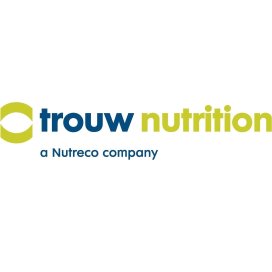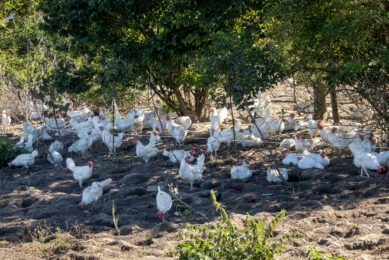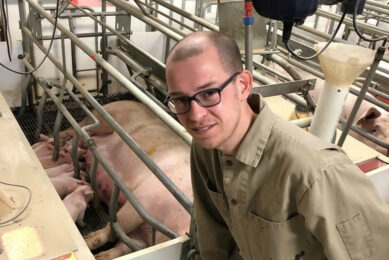Organic acids help pig producers navigate high feed prices
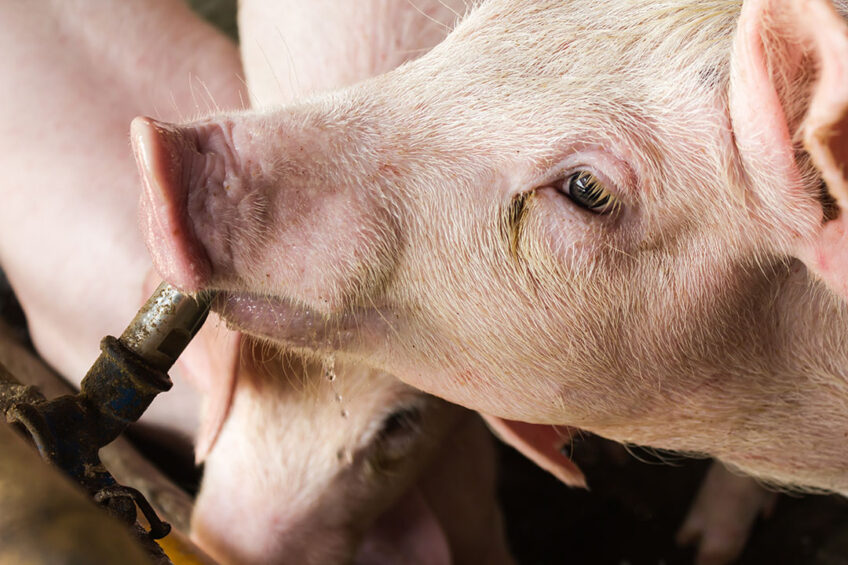
As feed prices remain high, piglets’ ability to optimally digest protein sources is a critical component of performance. Organic acids have been demonstrated to support piglet digestion, performance and farm economics.
An ABC approach
Pepsin, the enzyme that digests protein, requires sufficient hydrochloric acid (HCl) production in the stomach. HCI lowers the stomach pH to levels around 4, at which level pepsin can be activated. However, during weaning some feed ingredients can contribute to higher stomach pH levels – often above pH 5.0. Thus, piglets may be unable to digest protein sources in the diet. Formulating diets with a maximum allowed acid binding capacity (ABC) can help prevent feed from adversely affecting acidification. ABC refers to chemical properties in feed ingredients that trap HCl and impede acidification. Because piglets do not produce enough HCl during the first 3-4 weeks of life, extra support is needed to reduce stomach pH and aid protein digestion.
Selko researchers introduced a nutrient called ABC-4 (ABC at pH 4) that measures each ingredient’s ability to trap HCl and its effect on stomach pH. Limestone, soybean meal, and animal protein source ingredients have high ABC-4 values because they bind HCl in the stomach and elevate pH. Organic acids have low-to-negative ABC-4 value, and act as stomach acidifiers, thus helping balance the detrimental effect of ingredients that impair stomach acid levels. Research has demonstrated that having a balanced ABC-4 value in the final feed improves protein digestion and increases pig efficiency. Better protein digestion may also potentially reduce incidence of post-weaning diarrhoea.
Meta-analysis insights
A second strategy uses organic acids to optimise stomach pH in weanling piglets. A meta-analysis included 3 R&D studies conducted at the Trouw Nutrition Research Center [SRC]. A total of 332 weaned pigs (7.5 kg, 24 days old) were used. Half of the pigs were supplemented with Selko-pH (Selko) in water for 6 weeks. Selko-pH is a water acidifier designed to support digestion using a specific blend of buffered and free organic acids. At day 42 post-weaning, a reduction of 13.4% in stomach pH (3.58 vs 3.10 for control and Selko-pH) was observed. At this time, the amount of HCl production nears its maximum. A more distinct effect of an acidifier is expected in the first 2-3 weeks post-weaning when HCl production is lower.
Selko conducted 16 studies (15 R&D, 1 field trial) in collaboration with research institutes, universities, and farmers in several countries, including a variety of production systems, climates, and housing conditions. Studies evaluating the effects of Selko-pH on weanling pigs’ growth performance showed that feed conversion ratio (FCR) was reduced by an average of -3.3%, and final body weight improved by an average of +4.0% when Selko-pH was applied via water (Figure 1).
Figure 1 – Relative weaned piglet performance in 16 independent trials adding organic acids via water (Selko-pH, Selko). Horizontal line indicates control performance results. BW (final body weight), FCR (feed conversion ratio).
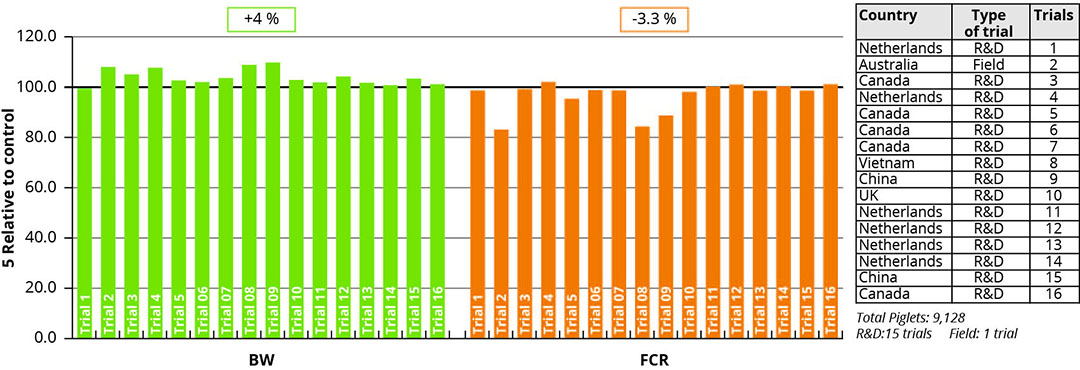
Calculating ROI
When feed prices rise, producers often remove feed additives to reduce production costs. However, in volatile markets where ingredient quality is uncertain, focusing on improving the FCR may deliver better production economics.
Improved FCR is related to increased protein digestibility and better intestinal health. Blends of organic acids support stomach acidification, digestive enzyme activity, nutrient digestibility, alteration of intestinal morphology, and other gastrointestinal functions. Furthermore, organic acids stabilise gut microbiota by limiting the amount of undigested protein that reaches the hindgut, promoting beneficial rather than pathogenic bacterial populations and increasing nutrient availability for the host. Considering that feed accounts for 70% of production costs, it is essential that piglets, not pathogenic bacteria, receive nutrients.
How can supplementing organic acids support the bottom line? The return on investment (ROI) of using Selko-pH in water, based on an average improvement in FCR of -3.3%, was calculated for nursery pigs fed a 2-phase corn-soybean meal-wheat-barley based weanling diet (1-14 days, 5 kg of feed, and 15-42 days with 24 kg feed). Based on local feed, additive and livestock prices, adding Selko-pH resulted in a calculated benefit of € 0.53 per pig compared to a control group (ROI of 3.69) (Table 1).
In conclusion, a proactive approach that includes organic acid blends designed to bolster the health and feed efficiency of weanling pigs can help support farmers’ businesses during uncertain times.


